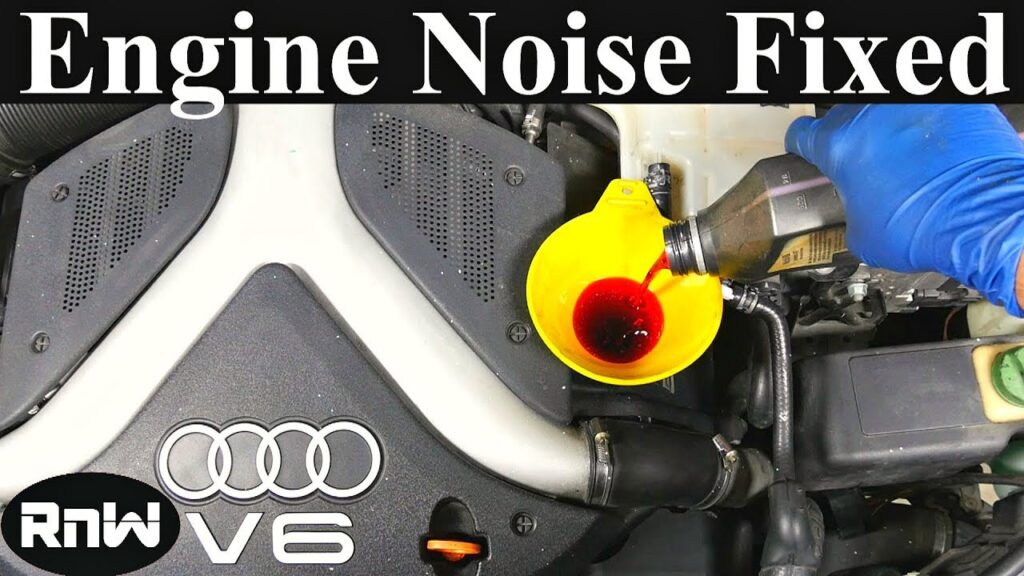The best lubricant for a motorcycle engine depends on the engine type and the manufacturer’s recommendations. It is crucial to choose a lubricant that is specifically formulated for motorcycles to ensure optimal performance and protection.

Credit: www.indianmotorcycle.com
Synthetic Vs. Mineral Oil
When it comes to choosing the right lubricant for your motorcycle engine, there are two primary options to consider: synthetic oil and mineral oil. Both types have their own unique properties and advantages, so it’s important to understand the differences before making a decision.
Production Differences
Synthetic oil is made through a complex chemical process that involves synthesizing molecules to create a highly refined and pure lubricant. This process allows synthetic oil to provide superior lubrication and protection for your motorcycle engine, even in extreme conditions. On the other hand, mineral oil is derived from crude oil and undergoes a less intensive refining process. While mineral oil is still effective in lubricating your engine, it may not offer the same level of performance and protection as synthetic oil.
Advantages Of Synthetic Oil
Synthetic oil offers several advantages that make it a popular choice among motorcycle enthusiasts. Firstly, synthetic oil provides better lubrication and reduces friction, which can help extend the lifespan of your engine components. Secondly, synthetic oil has a higher resistance to temperature extremes, allowing it to maintain its viscosity and provide consistent performance in both hot and cold weather. Lastly, synthetic oil is less prone to evaporating, which in turn helps reduce oil consumption and the need for frequent oil changes.
Uses Of Mineral Oil
Mineral oil may be the more traditional choice, but it still has its own set of benefits. Mineral oil is generally more affordable than synthetic oil, making it a cost-effective option for motorcycle owners. Additionally, mineral oil is known for its excellent detergent properties, which helps prevent sludge and deposits from building up in your engine. While mineral oil may not offer the same performance as synthetic oil, it can still provide adequate lubrication and protection for most motorcycle engines.
The Role Of Semi-synthetic Oil
Semi-synthetic oil, as the name suggests, is a blend of synthetic oil and mineral oil. This type of oil combines the benefits of both synthetic and mineral oils, offering a balance between performance and affordability. Semi-synthetic oil is often recommended for motorcycles that have moderate to high engine loads or operate in varying temperatures. It provides better protection than mineral oil alone while still being more cost-effective than full synthetic oil.
Decoding Motorcycle Oil
When choosing the best lubricant for your motorcycle engine, it’s essential to understand the intricacies of motorcycle oil. Deciphering numbers in the service manual and on oil bottles, distinguishing between motorcycle and car oil, and evaluating the differences between synthetic, conventional, and semi-synthetic oils are crucial steps in optimizing the performance of your bike.
Interpreting Numbers In Service Manual And On Bottles
- Service manual codes like SAE 10W-40 represent viscosity; lower numbers for cold start protection and higher numbers for high-temperature performance.
- Viscosity index (VI) indicates oil’s stability across a wide temperature range.
Differences Between Motorcycle And Car Oil
- Motorcycle oils contain additives specific to bikes, such as anti-wear agents and friction modifiers.
- Car oils lack these additives and may not provide adequate protection for a motorcycle engine.
Exploring Synthetic And Conventional Oil
- Fully synthetic oils offer superior lubrication, thermal stability, and engine cleanliness.
- Conventional oils are more affordable but may require more frequent changes.
Insights Into Semi-synthetic Oil
- Semi-synthetic oils combine the benefits of synthetic and conventional oils for a balance of performance and cost-effectiveness.
- They provide good engine protection while being budget-friendly.
Understanding Engine Oil Grades
Effect Of Viscosity On Engine Performance
The viscosity of engine oil impacts how well it lubricates the components, affecting engine performance.
Recommended Oil Grades For Different Engines
- Synthetic Motorcycles: Opt for fully synthetic oils for enhanced performance.
- Older Motorcycles: Higher viscosity oils are recommended for engines with more wear.
Fully Synthetic Vs. Petroleum-based Mineral Oils
Fully synthetic oils outperform mineral oils due to their superior design and longevity.

Credit: www.indianmotorcycle.com
Best Practices In Lubrication
Choosing the right lubricant for your motorcycle engine is crucial. Consider factors such as viscosity and follow your manufacturer’s recommendations to ensure optimal performance and longevity. Avoid using passenger car lubricants, as they may not be suitable for motorcycle engines.
Impact Of Passenger Car Lubricant In Motorcycle Engine
Putting passenger car lubricant in a motorcycle engine is potentially risky, so make sure you’re choosing your lubricant wisely.
Interpreting Motorcycle Oil Ratings And Specifications
When selecting motorcycle oil, understanding the ratings and specifications is crucial to ensure optimal performance.
Quality Liquid Additives For Motorcycle Engines
Enhance your motorcycle engine’s performance by incorporating quality liquid additives that meet industry standards.
Applying Used Motorcycle Engine Oil To Bicycle
Consider recycling used motorcycle engine oil for your bicycle maintenance to promote sustainability.
Choosing The Right Motorcycle Engine Oil
When deciding on the best lubricant for your motorcycle engine, it is crucial to select the one that is most suitable for your engine type and usage. With a plethora of options available, understanding the various recommendations from motorcycle oil brands, as well as the ideal lubricants for low displacement and older engines, becomes essential.
Recommendations From Motorcycle Oil Brands
- Valvoline
- Motul
- Castrol
Ideal Lubricants For Low Displacement And Older Engines
For low displacement and older engines, it is advisable to opt for oils with higher viscosity ratings to ensure optimal lubrication in engines with more wear and tear.
Assessing Synthetic Motorcycle Oil
Synthetic motorcycle oils offer superior performance and longevity compared to conventional mineral oils, as they are specifically designed to meet the demands of modern engines.
Specialized Lubricants
When it comes to motorcycle engine lubrication, specialized lubricants play a vital role in maintaining the performance and longevity of the engine. Motorcycle engines have unique demands, and using specialized lubricants is crucial to ensure smooth operation and protection against wear and tear.
Banaslip Chain Lube: Why It’s Essential
When it comes to the lubrication of motorcycle chains, Banaslip Chain Lube stands out as an essential product. Its specially formulated composition provides effective protection against corrosion and wear, ensuring the optimal performance and longevity of the chain.
Making Chain Lubricant For Motorcycles
Manufacturing high-quality chain lubricants for motorcycles involves a precise blend of ingredients to provide optimal performance and durability. The process requires meticulous attention to detail to create a lubricant that adheres to the chain, reduces friction, and protects against environmental factors.
Applying Motorcycle Engine Oil To Cars
Using motorcycle engine oil in cars can lead to significant issues due to the unique demands of motorcycle engines. It is crucial to adhere to the recommended motorcycle engine oil to ensure optimal performance and protection for the engine.
Engine Assembly And Lubrication
To ensure optimal performance and longevity for a motorcycle engine, it’s essential to choose the right lubricant. Most manufacturers recommend either fully synthetic or semi-synthetic oil, as they offer superior protection and lubrication. These oils are designed to withstand high temperatures and provide excellent wear protection, making them the best choice for motorcycle engines.
Insights Into Engine Assembly Lube
During the engine assembly process, it is crucial to apply the right lubricant to ensure proper functioning and longevity of your motorcycle’s engine. Engine assembly lube helps to reduce friction between moving parts and prevent metal-to-metal contact during the initial startup. This specialized lubricant provides superior protection against wear and corrosion, allowing the internal components to function smoothly and efficiently. By using the right engine assembly lube, you can ensure that your motorcycle’s engine is properly lubricated right from the start, enhancing its overall performance and durability.
Expert Recommendations For Engine Assembly
When it comes to choosing the best engine assembly lube for your motorcycle, it is important to consider the recommendations of experts in the field. These professionals have extensive knowledge and experience in the motorcycle industry and can provide valuable insights on which lubricants work best for different engine types and applications. Here are some expert recommendations to help you make an informed decision:
- Brand-specific recommendations: Different motorcycle manufacturers may have specific lubricant recommendations for their engines. It is advisable to check the owner’s manual or consult the manufacturer’s website to determine the recommended type and brand of engine assembly lube for your motorcycle.
- Viscosity: The viscosity of the engine assembly lube is another important factor to consider. Typically, experts recommend a lube with a higher viscosity for engines with higher mileage or more wear, as it provides better protection against friction and wear. On the other hand, engines with lower mileage or newer engines may benefit from a lube with a lower viscosity to ensure proper lubrication without excessive drag.
- Compatibility: It is crucial to ensure that the engine assembly lube you choose is compatible with the materials and components used in your motorcycle’s engine. Some lubes may contain additives or chemicals that can harm certain engine parts. It is always best to consult with an expert or refer to the manufacturer’s recommendations to ensure compatibility.
- Quality and reputation: Opting for a reputable and high-quality engine assembly lube is essential to ensure optimal performance and protection for your motorcycle’s engine. Trusted brands with a good reputation in the industry often prioritize research and development to create lubricants specifically formulated for motorcycle engines.
In conclusion, selecting the right engine assembly lube is crucial for the proper functioning and durability of your motorcycle’s engine. By following expert recommendations and considering factors such as compatibility and viscosity, you can confidently choose a lubricant that provides optimal protection and performance. Remember to always refer to the manufacturer’s recommendations and consult with professionals if you have any doubts.

Credit: www.valvolineglobal.com
Frequently Asked Questions For Which Lubricant Is Best For A Motorcycle Engine?
Which Type Of Lubricant You Will Use In A Bike Engine?
You should use high-quality motorcycle engine oil suitable for your bike’s specifications and your riding conditions. Make sure to follow the manufacturer’s recommendations for the best performance.
Which Engine Oil Is The Best For Motorcycle?
The best engine oil for motorcycles differs based on the specific requirements of the bike. It’s important to follow the manufacturer’s recommendations for optimal performance. Higher viscosity oils are better for older engines, while lower viscosity oils are suitable for newer engines.
Ensure you choose the right oil for your motorcycle.
Does It Matter What Oil I Put In My Motorcycle?
It is crucial to use the recommended oil for your motorcycle to ensure optimal performance and engine longevity. Always follow the manufacturer’s specifications, as different engines may require specific oil viscosity. Consulting your motorcycle manual is the best practice.
Is Fully Synthetic Oil Better For Motorcycles?
Fully synthetic oil is better for motorcycles as it outperforms mineral oils and lasts longer. Choose wisely for optimal engine performance.
Conclusion
When it comes to choosing the best lubricant for your motorcycle engine, it is crucial to consider factors such as viscosity, engine type, and manufacturer recommendations. Whether you opt for synthetic, mineral, or semi-synthetic oil, ensuring it meets the necessary specifications is essential.
Proper lubrication not only enhances the performance of your motorcycle but also prolongs its lifespan. So, don’t compromise on the quality of lubricant you use and make an informed decision based on your specific needs and requirements.

